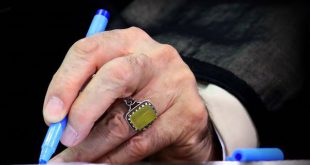The program focuses on the history, politics, religions, cultures, knowledge formations, and normativities of Islamic societies from the beginnings of Islam to the present with a geographical emphasis on West Asia and North Africa as well as Europe.
History and Societies of the Islamic World is a research-oriented master’s program at the Department of History and Cultural Studies with a focus on history, culture, religion, and the social sciences. It is a consecutive master’s program taught entirely in English that requires a bachelor’s degree in History and Cultures of the Middle East with a focus on Islamic Studies, or an equivalent degree in a closely related subject.
The program focuses on the history, politics, religions, cultures, knowledge formations, and normativities of Islamic societies from the beginnings of Islam to the present. The regional focus lies on West Asia and North Africa as well as on Europe, with special attention to global perspectives and interconnections. The master’s program offers an overview of the current state of research and central debates in the study of the history and societies of the Islamic world and trains students in various research approaches and methodologies. The inter- and transdisciplinary area of the program provides students with the opportunity to specialize and deepen their professional focus. The principles and techniques of academic work and good scholarly practices are taught, practiced, and applied.
Unique features of the program in the German academic context include the regional profile area “Islam in Europe” and a special emphasis on theory and methodology in the study of the Islamic world. Theoretical and methodological topics and approaches include gender dimensions in various contexts as well as constructions of difference and alterity; postcolonial perspectives; critique of racism; knowledge production and power; the interaction of law, religion, and politics; systems of meaning-making; linguistic and social constructions of reality; power asymmetries and dependencies; conceptual history and semantic fields; religion and secularity; heritagization; popular and consumer culture; urban studies; and insider and outsider perspectives among Muslims and non-Muslims.
The strong research orientation of the master’s program results in a close linkage between the courses offered and the research priorities of the Institute of Islamic Studies. Through research-based learning, students are encouraged to carry out independent research projects – for example through guided field research, interview-based research, philological source analysis with a focus on unedited manuscripts, the systematic recording and analysis of current Arabic knowledge production, digital humanities, approaches to material culture, or in globally oriented conceptual studies drawing on multiple types of sources. Additionally, students deepen their knowledge of Arabic through reading courses dealing with Arabic primary sources of various types and genres in the core focal area of the program.
Students in their second or third semester are encouraged to study abroad, choosing among various partner universities. Professional internships are also suitable for a stay abroad and can be included in the program as part of the trans- and interdisciplinary area. Students also become familiar with international scholars through guest lectures and presentations that supplement the regular courses.
Start: Winter Semester 2025/26
Application period: April 15–August 15
Admission Requirements
For admission to the master’s program, applicants must fulfill the following requirements:
- A first university degree (e.g., a bachelor’s degree) comprising at least 180 credit points (ECTS). A minimum of 60 ECTS must have been earned in courses relevant to the study of history and societies of the Islamic world. Of these 60 ECTS, at least 40 ECTS must have been earned in courses that impart written Arabic language skills up to and including the B2 level of the Common European Framework of Reference for Languages (CEFR) and oral Arabic language skills at the level B1 or an equivalent. At least 20 ECTS of the requirement must have been earned in courses focusing on other (i.e., not language skills-focused) topics relevant to the study of history and societies of the Islamic world. The Arabic language requirement can also be fulfilled in other ways, for example by providing proof that the applicant has completed secondary or tertiary education in an Arabic-speaking country. In this case, the required 60 ECTS must have been earned in courses focusing on other (i.e., not language skills-focused) topics relevant to the study of history and societies of the Islamic world.
- Applicants who have not completed a university degree at an institution where coursework was conducted mainly in English must demonstrate English language skills corresponding to the C1 level (CEFR).
- German language skills are not required.
More information on admission criteria can be found in the Admissions Regulations for the Master’s Program History and Societies of the Islamic World (pages 207-231)
Please note that only the German versions of these documents are legally binding. This translation is intended for the convenience of the non-German-reading public and is for informational purposes only.
Fees
Students do not pay any tuition fees, the university only charges semester fees and contributions each semester.
 Ijtihad Network Being Wise and Faithful Muslim in the Contemporary World
Ijtihad Network Being Wise and Faithful Muslim in the Contemporary World
